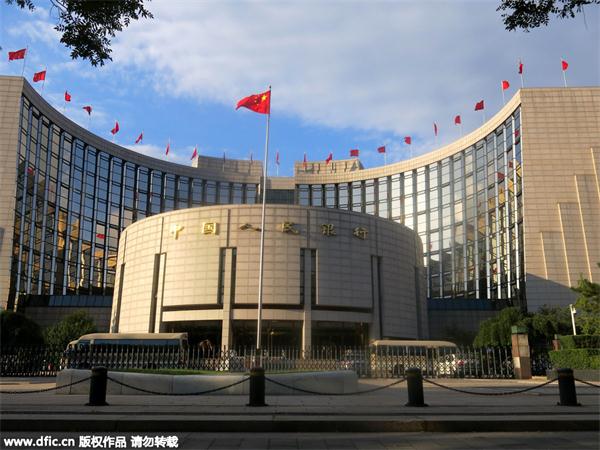PBOC push gives blockchain tech a massive fillip
 |
|
View of the headquarters of the Peoples Bank of China (PBOC), Chinas central bank, in Beijing, June 27, 2015. [Photo/IC] |
This technology allows parties to carry out direct transactions without using an intermediary by providing a means for people to share reliable and tamper-proof lists of information known as distributed ledgers.
The People's Bank of China said earlier this month that it would recruit personnel to develop digital currency.
"Blockchain technology can be applied to many areas, and digital currency and global payment systems may be the first applications," said Xu Mingxing, CEO of a blockchain payment company OKLink.
Xu said blockchain technology is still at the early development stage and will be mature in the next two to three years, adding that developing digital currency with the blockchain technology is not difficult, but it is very important to control risks.
OKLink is a Beijing-based global business-to-business blockchain payment platform that cooperates with about 100 financial institutions with remittance licences in more than 20 countries and regions. "Our business is growing rapidly and we expect the transaction value of our platform will reach more than $100 million in 2017," said Xu.
Yao Qian, the central bank official leading the digital currency research center, said developing digital currency can make transactions more transparent and efficient and decrease costs of printing and transportation. China will first introduce the currency in certain money markets and promote its use in a gradual and cautious way.
According to a report of the World Economic Forum in August, international payments and wire transfers, which currently involve a lot of manual steps and fees, would be replaced by blockchain.
Several blockchain alliances have been formed to develop the technology. In October, Shanghai set up a Lujiazui blockchain alliance with 13 financial institution members. Its main research areas include renminbi cross-border payments and blockchain's application in a registration-based initial public offering system.
In April, a non-commercial organization, China Ledger Alliance, was set up to focus on research and development of blockchain applications. It is led by research and development company Wanxiang Blockchain Lab.
"Before full adoption of blockchain is possible, there are factors that need to be addressed, including an uncertain regulatory environment, lack of standardization efforts and the need for a formal legal framework," said Bob Contri, Global Financial Services Industry leader, Deloitte Global.
Huang Zhen, a professor of the law school of the Central University of Finance and Economics, said it is necessary for regulators to monitor blockchain activities and carry out appropriate regulations.
The report of the World Economic Forum said blockchain will fundamentally alter the way financial institutions do business around the world, but it comes with a set of risks that must be considered. These include errors in design, malicious behaviour as a consequence of human decisions, and potential gaps in security across all inputs and outputs.









